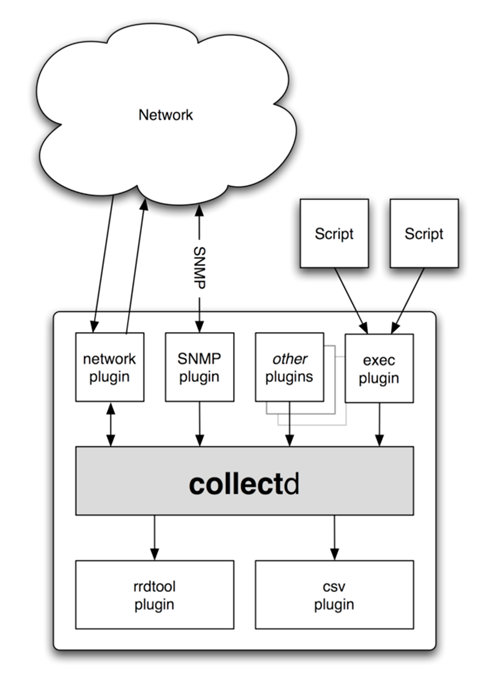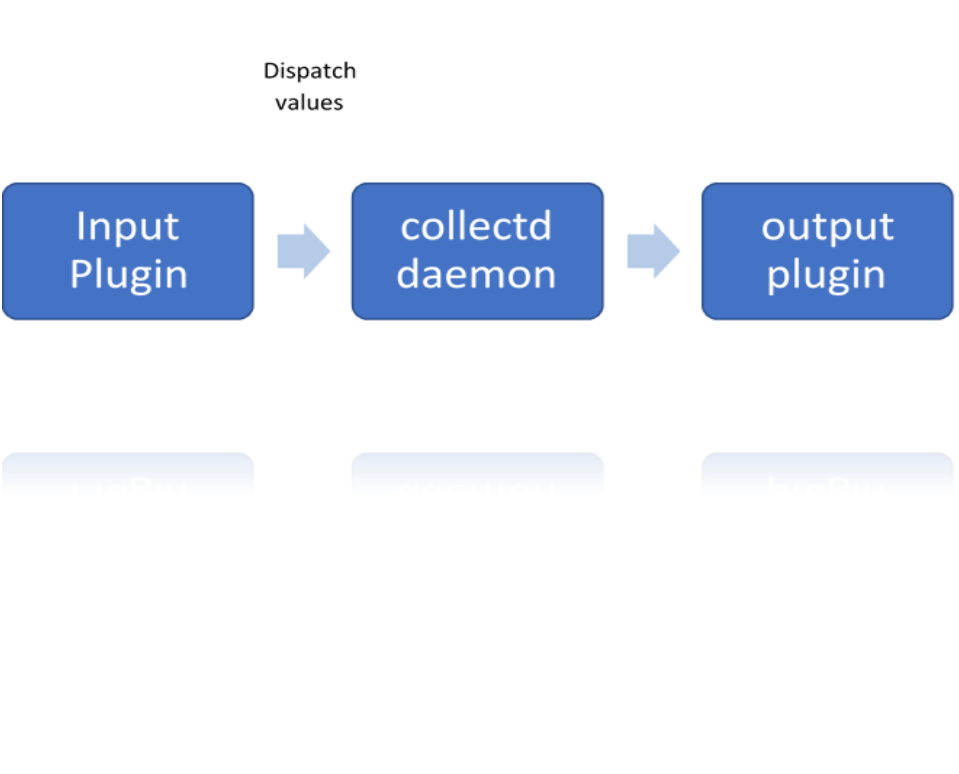What is collectd?
- collectd is a system statistics collection daemon; it uses plugins to collect system statistics and can publish those statistics in a number of ways.
- Free open source project, GNU General Public License, version 2 (GPLv2), the remaining files are licensed under other open source licenses
- collectd also provides some simple thresholding and event notification capabilities
Why use collectd?
The collectd API, the selection of available plugins (90+) coupled with the modular nature of collectd architecture, provides a generic path to expose platform statistics from all existing plugins and newly developed plugins to OpenStack or other fault management applications.
collectd also has bindings for several programming languages, which allows a developer to implement a plug-in in their language of choice, without having to modify the receiver of the collected metrics, for example Ceilometer itself.
collectd architecture
- plugins in collectd fall under one of the following categories:
- Input plugins: read system statistics at a regular interval, and dispatch the values to the collectd daemon.
- Output plugins: receive dispatched values from the daemon and output/write/dispatch those values in various output formats (e.g. JSON, SNMP, AMQP, MySQL, HTTP, etc).
- Binding plugins: which provide language bindings for collectd to allow plugins to be written in languages other than C.
- Logging plugins: which write information to log files or dispatch messages to syslog.
- Notification plugins: enable limited monitoring support in collectd.
- Other plugins which can both read and dispatch values.
collectd data flow
collectd statistics:
Statistics in collectd consist of a value list. A value list includes:
- Values
- Value length: the number of values in the data set.
- Time: timestamp at which the value was collected.
- Interval: interval at which to expect a new value.
- Host: used to identify the host.
- Plugin: used to identify the plugin.
- Plugin instance (optional): used to group a set of values together. For e.g. values belonging to a DPDK interface.
- Type: unit used to measure a value. In other words used to refer to a data set.
- Type instance (optional): used to distinguish between values that have an identical type.
meta data: an opaque data structure that enables the passing of additional information about a value list. “Meta data in the global cache can be used to store arbitrary information about an identifier”
Host, plugin, plugin instance, type and type instance uniquely identify a collectd value
collectd Values
- Derive: used for values where a change in the value since it’s last been read is of interest. Can be used to calculate and store a rate.
- Counter: similar to derive values, but take the possibility of a counter wrap around into consideration.
- Gauge: used for values that are stored as is.
- Absolute: used for counters that are reset after reading collectd consist of a value list.
collectd Data Sets
Values lists are often accompanied by data sets that describe the values in more detail. Data sets consist of:
- A type: a name which uniquely identifies a data set.
- One or more data sources (entries in a data set) which include:
- The name of the data source. If there is only a single data source this is set to “value”.
- The type of the data source, one of: counter, gauge, absolute or derive.
- A min and a max value.
Examples of types in collectd
Examples of types in types.db:
bitrate value:GAUGE:0:4294967295
counter value:COUNTER:U:U
if_octets rx:COUNTER:0:4294967295,tx:COUNTER:0:4294967295
In the example above if_octets has two data sources: tx and rx.
collectd notifications
Notifications in collectd are generic messages containing:
- An associated severity, which can be one of OKAY, WARNING, and FAILURE.
- A time.
- A Message
- A host.
- A plugin.
- A plugin instance (optional).
- A type.
- A types instance (optional).
- Meta-data.
Notifications and thresholds
References
https://collectd.org/faq.shtml
https://collectd.org/documentation.shtml
https://collectd.org/wiki/index.php/Notifications_and_thresholds


